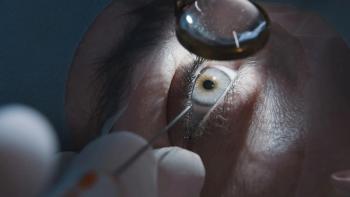
Aldeyra Therapeutics resubmits NDA for reproxalap for DED signs and symptoms treatment
Reproxalap was previously found to be statistically superior to vehicle for the primary endpoint of ocular discomfort (P=0.004) in a Phase 3 randomized, double-masked, vehicle-controlled dry eye chamber clinical trial.
Biotechnology company Aldeyra Therapeutics announced the resubmission of the New Drug Application (NDA) to the US FDA for the investigational new drug candidate topical ocular reproxalap, intended for the treatment of signs and symptoms of dry eye disease (DED).1 The application was resubmitted with a draft label reflecting acute activity in reducing dry eye symptoms in a dry eye chamber trial, chronic activity in reducing dry eye symptoms in a field trial, and acute activity in reducing ocular redness in 2 dry eye chamber trials, according to a news release. Previously disclosed positive results from a completed DED symptom trial were also submitted after being requested by the FDA following review of the previously submitted NDA.1
“If approved, reproxalap would have the potential to be the first DED therapy for chronic use with pivotal data demonstrating acute activity in reducing dry eye symptoms and ocular redness, 2 characteristics of dry eye disease of primary importance to patients,” said Todd C. Brady, MD, PhD, Aldeyra’s president and CEO, in the release.
Reproxalap is also in development for allergic conjunctivitis and works as a first-in-class small-molecule modulator of RASP, which are found to be elevated in ocular and systemic inflammatory diseases. The drug candidate has been studied in more than 2500 patients with no observed safety concerns, with mild and transient instillation site irritation as the most commonly reported adverse event in clinical trials assessing reproxalap.1
Aldeyra announced in August 2024 that the primary endpoint was met in a Phase 3 randomized, double-masked, vehicle-controlled dry eye chamber clinical trial assessing reproxalap in patients with DED. Reproxalap was found to be statistically superior to vehicle for the primary endpoint of ocular discomfort (P=0.004), which is acknowledged by the FDA as a symptom of DED, the release stated. Aldeyra also stated that it believes the results are supportive of the potential rapid clinical effect of reproxalap on reducing ocular discomfort as associated with DED.1
Per the Prescription Drug User Fee Act, the NDA resubmission is slated for FDA acknowledgement of acceptance for review within 30 days of submission, with completion of submission review to be completed within 6 months.1
Reference:
Aldeyra Therapeutics resubmits reproxalap New Drug Application for the treatment of dry eye disease. News release. Aldeyra Therapeutics. October 3, 2024. Accessed October 3, 2024.
https://ir.aldeyra.com/news-releases/news-release-details/aldeyra-therapeutics-resubmits-reproxalap-new-drug-application
Newsletter
Want more insights like this? Subscribe to Optometry Times and get clinical pearls and practice tips delivered straight to your inbox.













































